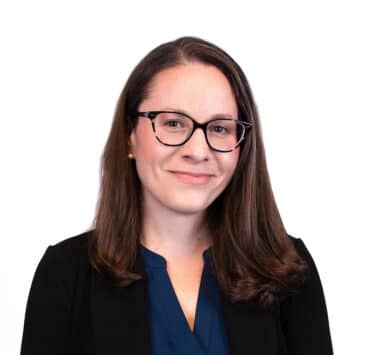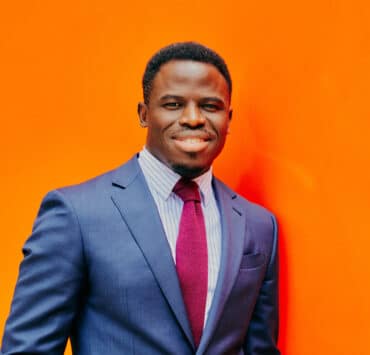|
Getting your Trinity Audio player ready...
|
It’s easy to be intimidated by Michelle Bergman. She has seen private equity from every possible vantage point, including its virtual inception. She has been the general counsel when the company has been purchased by private equity (PE) and saddled with unimaginable debt. She’s watched and advised on the growth of the alternative investment industry.
Bergman’s been an outside advisor for SEC regulated private equity funds and hedge funds. She lived through the massive reimagining of the space when Dodd-Frank took effect. She’s been with clients when they’ve rung the bell on Wall Street and NASDAQ, and she has advised and negotiated deals that forever altered the PE space.
She’s seen the best and the worst that private equity has to offer. Her ultimate takeaway?
“I see the opportunity and the effort that good private equity professionals put into building good assets, building good companies, pursuing ESG and DEI, and helping growing management teams that organizations can be proud of,” the attorney says. “There is some financial engineering that gives the space a bad rap, but in my career, I’ve largely been able to self-select out of those situations. Maybe I’m lucky in that way, but it’s been a very good run so far.”
Bergman was either there or in the neighborhood when private equity didn’t have a name or identity. At one point while practicing at firm Donaldson, Lufkin & Jenrette (DLJ) in the early 2000s, she represented DLJ’s flagship PE fund, their venture funds and their fund advisory business, where practically any private equity deal that was being raised ran through her firm or Merrill (previously Merrill Lynch).
“If you wanted an advisor to help you raise a fund, you came to us or went across the street,” Bergman recalls. “Eventually, all of those men—and it was most certainly all men—broke up and started dozens of placement agent firms, but up until then, I did engagement letters for any major fund that you could name in the industry at the time. The work was so incredible, and the people were so great, I would have stayed at DLJ for the rest of my career had they not been purchased.”
At the risk of jumping all over Bergman’s resume, she’s effectively had four quarters of an incredible career that is still at the top of its game: a quarter in big law, a quarter in-house with companies like Duane Reade, a quarter with her own shingle out—initially on her own and then as the cofounder of Duncan Bergman Mandell Legal Services—and finally her time as the GC of Vestar Capital Partners, which started as an outsourced position but ultimately became a permanent one.
The “how” seems almost as important as the “what” in this circumstance. Bergman has what she sees as an easy answer.
“You know the expression ‘busy people get things done?’ I have never not been a super-busy person,” Bergman says. “When they talk about earning your ten thousand hours, I think I blew through that in my first few years at my first firm, Latham & Watkins. If you’re billing eighty to one hundred hours a week, there isn’t time for much else.”
Each chapter of Bergman’s resume deserves heavy study, but there is only room here for sketches of moments. Bergman was already married with two children by the time she was billing eighty hours a week.
“When they talk about earning your ten thousand hours, I think I blew through that in my first few years at my first firm, Latham & Watkins. If you’re billing eighty to one hundred hours a week, there isn’t time for much else.”
Michelle Bergman
In addition to creating her own firm that excelled in compliance expertise under new Dodd-Frank regulations, she joined former Lathan & Watkins mentor Steven Della Rocca at Vestar along with other outsourced general counsel roles along the way. She’d helm Vestar’s GC chair on an interim basis when her mentor and friend unexpectedly passed away in 2019. She was then asked to take the role full-time.
Bergman is able to maintain Duncan, Bergman, and Mandell concurrently as a virtual firm with strong partners, long-tenured clients, and minimal staff oversight required. Her clients operate in different markets than those she supports at Vestar. It keeps her constantly busy, but it’s just how Bergman operates.
Bergman remembers the days when “private equity” was just known as “merchant banking” and a middle-market deal that would make headlines was $150 million. She remembers joking with her colleagues at Latham that maybe one day, a private equity fund would sell an investment portfolio company to another private equity fund. Eventually, it became the standard.
But there is still another chapter to Bergman’s story that she now needs to include. The proud Tulane graduate is the co-founder of the Tulane Law School Intersession for Corporate Legal Skills program, a week-long boot camp for 2Ls and 3Ls to learn skills that will allow them to immediately be effective in their first roles.
“Tulane gave me the securities regulations class that allowed me to be successful in my first job,” Bergman says. “A lot of law schools do a horrible job of teaching people how to be corporate lawyers, and I want to improve what is already a great program at Tulane.”
It’s a classic case, the lawyer says, of “be careful what you wish for.” She mapped a potential program on a napkin while at lunch with the Tulane law school dean. A year later, the dean challenged Bergman to put her money where her mouth was. The program has been so fruitful that successful graduates are coming back to teach the boot camp. Getting a job on the adjunct faculty is virtually impossible, and the program is on the cusp of expanding.
Bergman helped build the PE space. She’s represented countless movers and shakers on Wall Street. But, at present, she seems most excited about having another reason to drop by and see her son who’s currently a freshman at Tulane. The trip will keep her busy, but we already covered that.
Kirkland & Ellis:
“I have worked with Michelle for decades and she is simply one of the best. She cuts through complex situations to the heart of the issue and provides superb, balanced legal and commercial advice.”
—Jennifer S. Perkins, P.C., Partner


